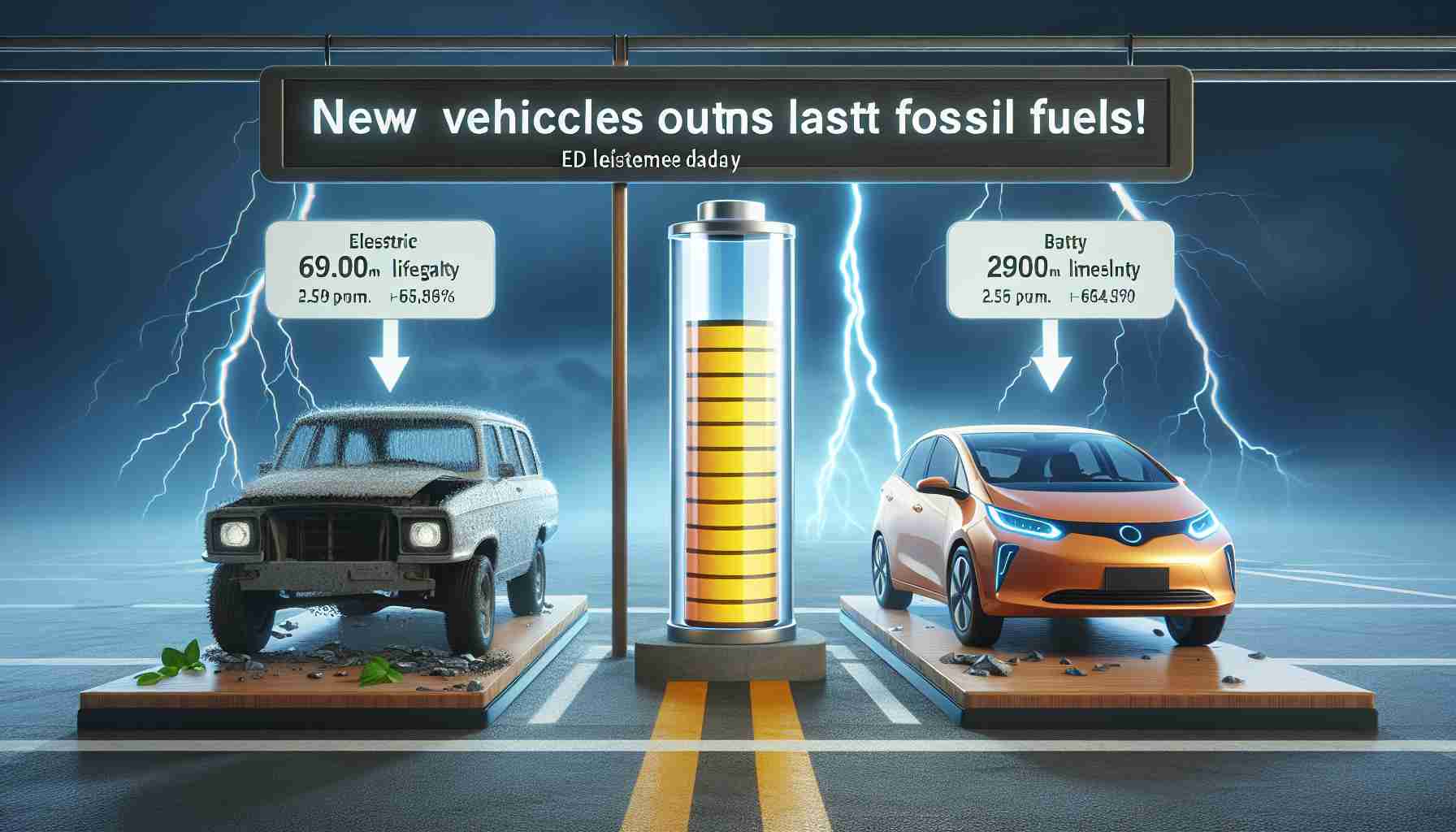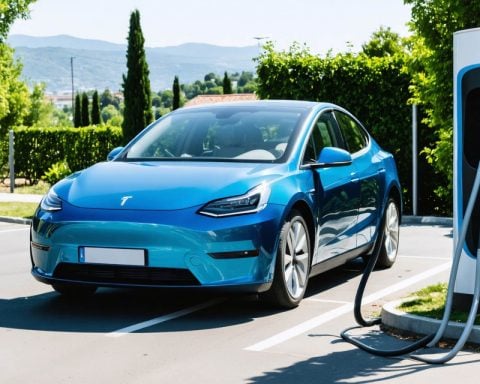Electric Vehicles Surpass Petrol and Diesel in Lifespan
Recent research has revealed exciting findings about the durability of electric vehicles (EVs) compared to traditional petrol and diesel cars. A comprehensive analysis conducted by Robert Elliott and his team at the University of Birmingham has examined millions of roadworthiness test records in the UK, showing that EVs are now a formidable option on the roads.
The study, which spanned from 2005 to 2022 and included nearly 30 million vehicles, indicates that the average lifespan of an electric vehicle now exceeds 18.4 years. In comparison, diesel vehicles average 16.8 years, while petrol vehicles lead slightly at 18.7 years. Furthermore, EVs also demonstrate superior endurance, traveling an average of 200,000 kilometers throughout their lifetimes, outstripping petrol but slightly underperforming against diesels.
Elliott emphasizes that the advancements in electric vehicle technology have significantly boosted reliability, with their failure rates decreasing at a much faster pace than both petrol and diesel vehicles. This paints a promising future for EVs, as they not only compete with but often surpass conventional cars in longevity.
While the benefits of moving away from fossil fuels are notable, experts warn that electric vehicles are not a panacea for environmental issues. They advocate for prioritizing alternative transport modes like cycling, walking, and public transit for a healthier, more sustainable future.
Implications of Electric Vehicle Longevity
The remarkable longevity of electric vehicles (EVs) signals a transformation not only in transportation but also in broader societal and environmental spheres. As EV lifespans extend beyond traditional petrol and diesel cars, we must consider how this shift impacts consumer behavior and infrastructure development.
Increased Adoption: As the durability of EVs becomes more apparent, consumers may be more inclined to invest in electric models, potentially accelerating their uptake in both personal and commercial fleet sales. This transition could lead to significant shifts in automotive manufacturing, as companies pivot more aggressively to electrification to meet demand.
Economic Shifts: The growing longevity of EVs can reshape the global economy by influencing oil markets and reducing reliance on fossil fuels. As electric vehicles gain market share, demand for petrol and diesel could decline, impacting oil-producing nations and driving innovation in renewable energy sectors. This overarching change might facilitate new job opportunities in battery production and green technologies.
Environmental Considerations: While the extended life of EVs can reduce immediate carbon output, production processes remain critical. The extraction and processing of lithium and cobalt for batteries raise concerns about ecological harm and the sustainability of resources. Future trends indicate a pressing need for the industry to prioritize recycling strategies and alternative battery materials to mitigate environmental impacts.
In conclusion, the longevity of electric vehicles is more than a mere statistic; it sets the stage for a larger dialogue on sustainable practices, economic resilience, and environmental stewardship in an increasingly electrified world. As society grapples with these challenges, the path forward will necessitate innovative thinking and comprehensive policies to fully harness the benefits of these advancements.
Electric Vehicles Outlast Conventional Cars: Discover the Surprising Lifespan Benefits!
Electric Vehicles Surpass Petrol and Diesel in Lifespan
Recent studies have indicated a significant shift in perceptions regarding the durability and longevity of electric vehicles (EVs) compared to traditional petrol and diesel automobiles. A rigorous analysis spearheaded by Robert Elliott and his research team at the University of Birmingham, covering roadworthiness test records of nearly 30 million vehicles in the UK from 2005 to 2022, has produced illuminating insights into the lifespan of EVs.
Lifespan Insights from the Study
The analysis reveals that the average lifespan of an electric vehicle is now 18.4 years, which positions EVs as a robust alternative on the roads. For context, diesel vehicles average 16.8 years, while petrol vehicles just edge ahead at an average of 18.7 years. In terms of distance traveled over their lifetimes, EVs average approximately 200,000 kilometers, demonstrating their reliability on longer journeys, although they still slightly trail diesel vehicle longevity.
Technological Advancements Leading to Increased Durability
One of the critical factors contributing to the improved reliability of EVs is the rapid advancements in electric vehicle technology. Elliott points out that the failure rates for EVs have declined significantly compared to traditional vehicles—suggesting a clear trend toward enhanced stability and performance. This progression not only positions EVs as a long-term investment for consumers but also supports the broader adoption of electric vehicles as a viable alternative to fossil fuel-powered cars.
Pros and Cons of Electric Vehicles
Pros:
– Long Lifespan: Average lifespan at 18.4 years, exceeding that of conventional vehicles.
– Lower Failure Rates: Rapidly decreasing failure rates indicate improving reliability.
– Environmental Impact: Reduce dependency on fossil fuels, promoting a cleaner future.
Cons:
– Initial Cost: Higher upfront costs compared to traditional petrol and diesel vehicles.
– Battery Longevity: While EVs have long lifespans, battery replacement can be costly and time-intensive.
– Technological Accessibility: Not all regions have the necessary infrastructure for widespread EV use.
Use Cases and Market Trends
The growing trend towards electric vehicles is evident as more manufacturers commit to producing EV models. With various incentives from governments and local authorities encouraging electric vehicle purchases, such as tax benefits and subsidies, the market is on an upward trajectory. Consumers are increasingly aware of the environmental impact of their transportation choices, which is propelling EV adoption further.
Future Predictions in Electric Vehicle Technology
As technology continues to evolve, several predictions have emerged regarding the future of electric vehicles:
1. Enhanced Battery Technology: Innovations in battery technology are expected to lead to longer-lasting batteries and quicker charging times.
2. Sustainable Manufacturing: Increased focus on sustainable materials and ethical sourcing in EV manufacturing will likely gain momentum.
3. Autonomous Electric Vehicles: The development of autonomous driving technologies will merge with electric vehicles, potentially transforming the transport landscape entirely.
Conclusion and Considerations for Sustainable Transportation
While electric vehicles present a promising solution to many transportation challenges, experts caution that they are not a comprehensive answer to all environmental issues. There is a growing consensus that promoting alternative modes of transportation, such as cycling, walking, and investing in public transit, is essential for fostering a truly sustainable future. Balancing the adoption of EVs with these alternative transport methods will be crucial in reducing our overall carbon footprint and promoting environmental health.
For more information on the latest developments in electric vehicles and sustainable transportation, visit University of Birmingham.


















